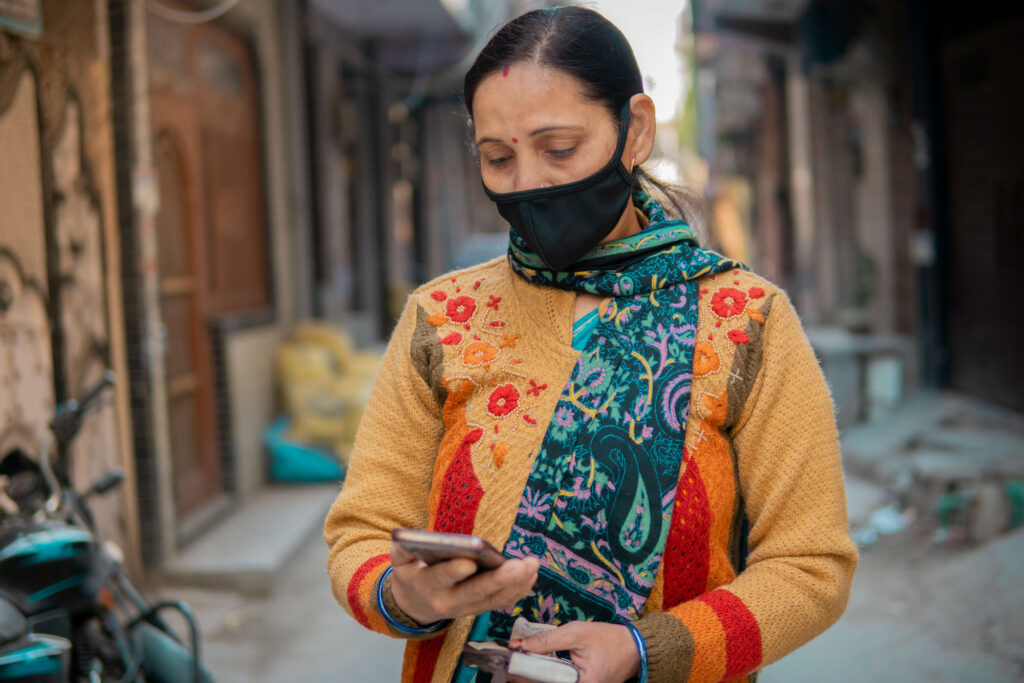
Each year, World Consumer Rights Day is celebrated on March 15 as a means of raising global awareness about consumer rights and needs. To join in spreading the awareness, this post outlines current risks and opportunities emerging in the field of consumer protection.
By October 2022, when Financial Inclusion Week (FIW) was held, the world was beginning to emerge from more than two years of pandemic lockdowns and accelerated digitalization. The Global Findex 2021 showed that the share of adults in developing economies making or receiving digital payments grew from 35 percent in 2014 to 57 percent in 2021, with over one-third of adults paying their utility bills digitally for the first time during COVID. In addition, growth in digital lending dropped by 8 percent in the first two quarters of 2020 but showed a strong recovery when lockdowns eased.
While these numbers reveal opportunities to use digital financial services to drive financial inclusion, there is also evidence of rising risks that can increase vulnerabilities among newly included consumers. CGAP’s research found that the frequency, breadth, and complexity of risks have increased since 2017. The 2021 FinAccess Survey found that 47 percent of Kenyans using mobile money have lost funds, a sharp increase from the 8 percent who had cited the same problem in 2019. Digitalization has rapidly increased identity theft, fraud, and mobile money scams.
The impact of these risks is not experienced uniformly by all consumer segments. This indicates that our approach to consumer protection needs a more nuanced, segmented approach to address vulnerabilities. Data from the United Nation’s 2022 Progress on the Sustainable Development Goals report is not encouraging. According to the report, it will take us approximately 300 years to address discriminatory laws and close prevailing gaps in legal protection for women. In addition to issues of fraud and financial losses that all consumers experience, women are also subject to greater harassment due to breaches of privacy and online harassment.
Consumer Protection was a Clear Focal Point at FIW 2022
This rise in consumer risks has not gone unnoticed by the inclusive finance community. The urgency to address these risks, particularly before consumer trust in digital financial services is eroded, was a leitmotif across many of the sessions at Financial Inclusion Week 2022. For example, in CFI’s global plenary, we discussed the need to embed privacy into the design and delivery of financial services, and expert panelists highlighted international examples to illustrate how this might be done.
The urgency to address these risks, particularly before consumer trust in digital financial services is eroded, was a leitmotif across many of the sessions at Financial Inclusion Week 2022.
Digitalization tends to exacerbate existing risks and introduces new risks that must also be detected and addressed. Standards such as the Universal Standards for Social and Environmental Performance Management, SPTF’s Standards for Responsible Digital Financial Services, and others emerged as important tools to address existing risks. In a session hosted by SPTF, there was agreement among discussants that standards provide a guideline for best practices for known risks. However, these guidelines may need to be adapted to specific contexts and may not reflect emerging risks or be sufficient to address them.
A session by Incofin highlighted investors as an important stakeholder group to enforce best practices through due diligence and monitoring. And in CFI’s on-demand session, we also spoke to investors about how they shape market-level incentives through advocacy and catalytic capital investments. Catalytic capital investors can spur lending in underdeveloped markets while extending a stamp of responsible lending to companies they invest in at an early stage.
The Way Forward
As technology increasingly affects inclusive financial services, consumer protection risks are beginning to arise from areas outside the remit of traditional financial sector regulation. In addition, consumers must face risks from newer sources, which impact their financial lives. These new sources of risk include climate shocks, changes in weather patterns, the evolving nature of work, and factors like changing societal structures and norms. These risks can cause vulnerabilities in consumers’ lives at any stage of their interaction with financial services.
Consumer research, policy advocacy, and legislation must adapt to this new normal to take a different lens on identifying and addressing these challenges. By doing so, the industry can help low-income consumers achieve the goals of financial resilience and well-being. CFI’s consumer protection strategy addresses this by using a vulnerability framework that identifies where consumer vulnerability is liable to exist in financial services. Identifying causes of vulnerability at any point in the consumer’s life captures moments where consumer resilience can be eroded and thus requires action by various stakeholder groups – investors, regulators, supervisors, and policymakers.
Identifying causes of vulnerability at any point in the consumer’s life requires action by various stakeholder groups – investors, regulators, supervisors, and policymakers.
CFI also convenes the Responsible Finance Forum (RFF), a global platform for dialogue and knowledge sharing on responsible inclusive finance and consumer protection. The RFF aims to confront the changing nature of consumer risks and collectively arrive at solutions that the inclusive finance industry can adopt to deliver financial services responsibly.
View the full Consumer Protection playlist from FIW 2022.
Financial Inclusion Week 2022 had over 3,300 registered participants from 2,000 organizations across 148 countries. With almost 400 speakers and 125 sessions, FIW 2022 was the largest event to date. All sessions from FIW 2022 can be viewed here.
And be sure to save the date for FIW 2023, which will take place October 16-19, 2023.










